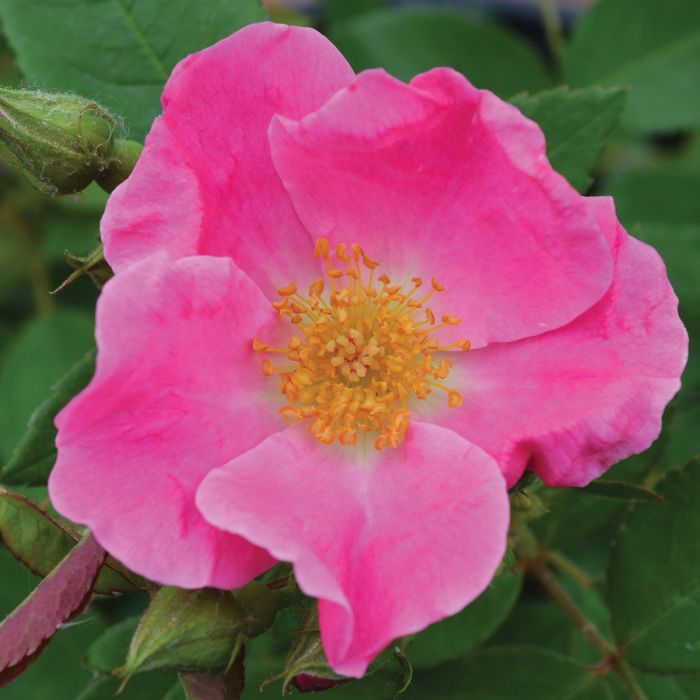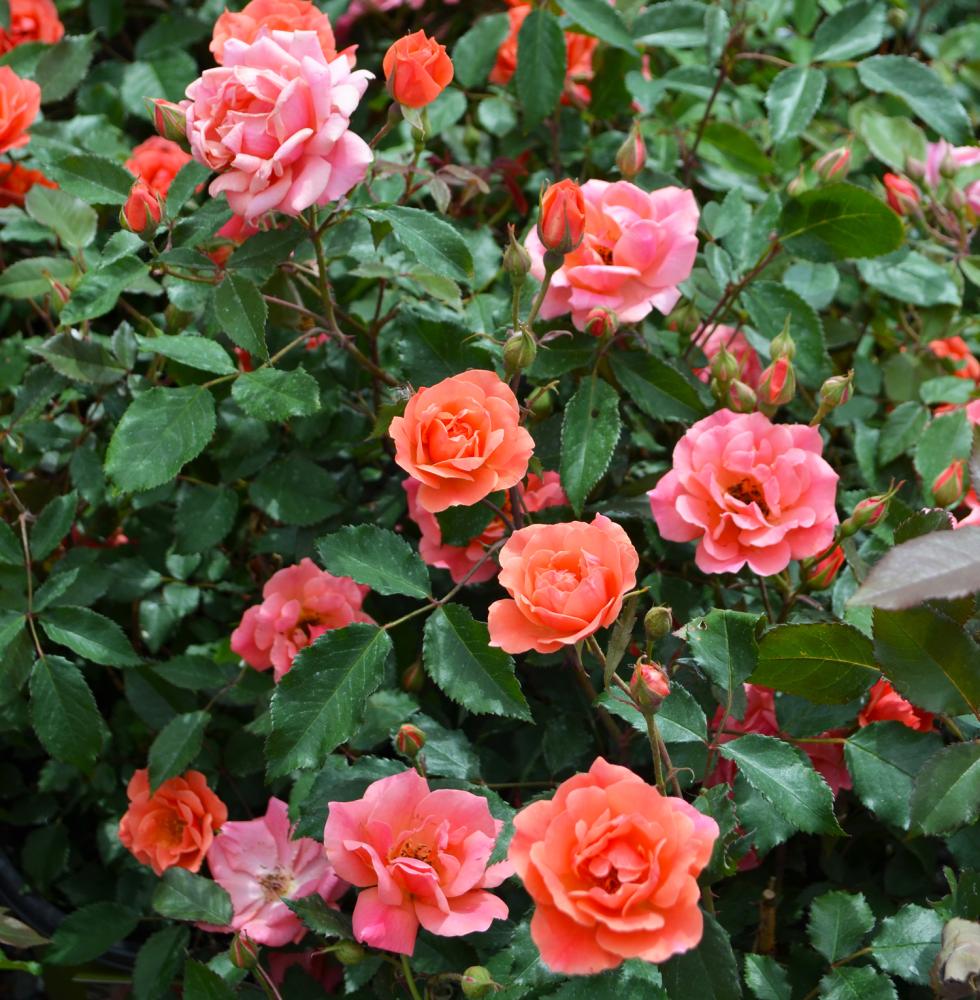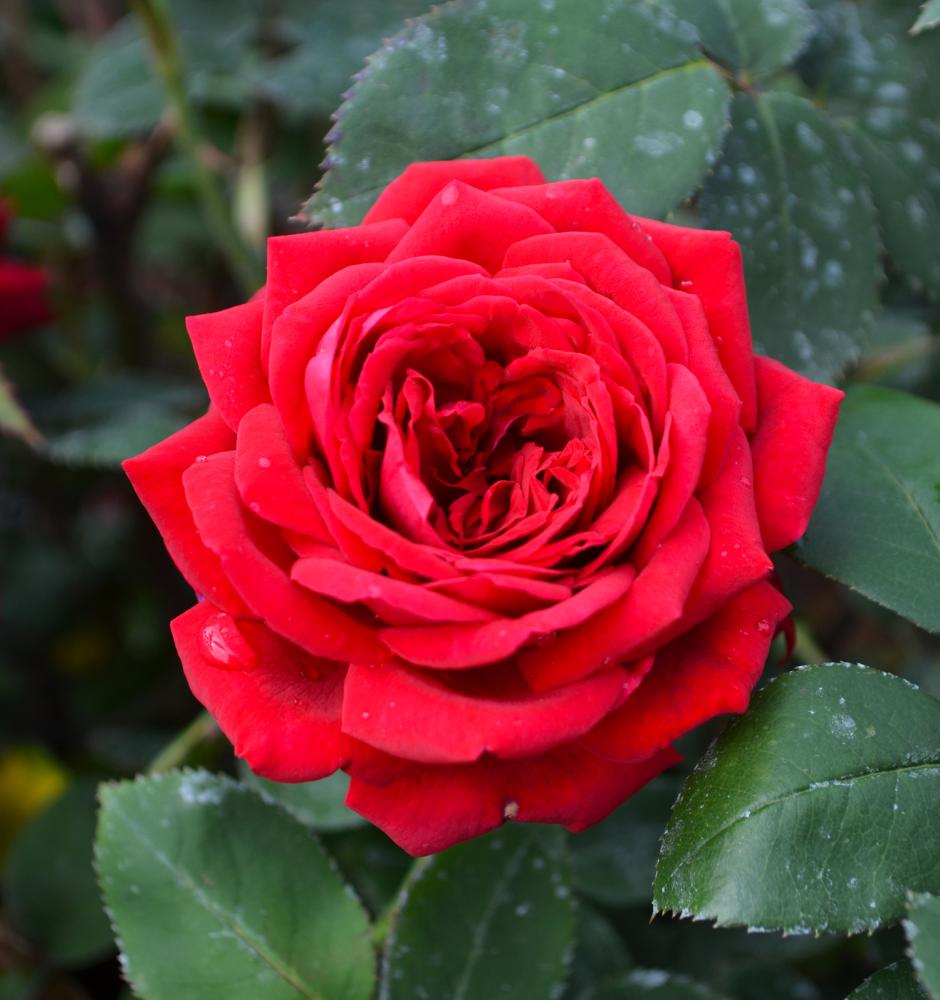Rosa, Shrub Rose 'Nearly Wild'

Out of stock
Temporarily Out of Stock- Sun Preference
- Full-Sun
- Bloom or Harvest Time
- June, July, August, September
Description
This popular old-fashioned hardy shrub rose is absolutely smothered in single pink flowers in early summer, repeat-blooming; compact and low-growing, also resistant to disease, excellent for garden detail use; needs full sun and well-drained soil
- Zone: 4-9
- H 2-3' x W 2-3'
Shrub, Hybrid Tea, & Floribunda Roses
Enhance your garden with the timeless beauty of perennial and shrub roses from Gertens! With our extensive selection, you'll find the perfect roses to add color, fragrance, and charm to your outdoor space. Whether you're looking for classic varieties or modern hybrids, our roses are carefully chosen for their vigor, disease resistance, and stunning blooms.
Details
Height: 3 feet
Spread: 3 feet
Sunlight:![]()
Hardiness Zone: 4a
Group/Class: Shrub Rose
Description:
This popular old-fashioned hardy shrub rose is absolutely smothered in single pink flowers in early summer, repeat-blooming; compact and low-growing, also resistant to disease, excellent for garden detail use; needs full sun and well-drained soil
Ornamental Features
Nearly Wild Rose is bathed in stunning lightly-scented pink flowers with yellow eyes and white centers at the ends of the branches from late spring to late summer. The flowers are excellent for cutting. It has dark green foliage throughout the season. The oval compound leaves turn yellow in fall. The fruit is not ornamentally significant.
Landscape Attributes
Nearly Wild Rose is a multi-stemmed deciduous shrub with an upright spreading habit of growth. Its average texture blends into the landscape, but can be balanced by one or two finer or coarser trees or shrubs for an effective composition.
This is a high maintenance shrub that will require regular care and upkeep, and is best pruned in late winter once the threat of extreme cold has passed. Gardeners should be aware of the following characteristic(s) that may warrant special consideration;
- Disease
- Spiny
Nearly Wild Rose is recommended for the following landscape applications;
- Mass Planting
- Border Edging
- General Garden Use
- Groundcover
- Container Planting
Planting & Growing
Nearly Wild Rose will grow to be about 3 feet tall at maturity, with a spread of 3 feet. It tends to fill out right to the ground and therefore doesn't necessarily require facer plants in front. It grows at a fast rate, and under ideal conditions can be expected to live for approximately 20 years.
This shrub should only be grown in full sunlight. It does best in average to evenly moist conditions, but will not tolerate standing water. It is not particular as to soil type or pH. It is somewhat tolerant of urban pollution. This particular variety is an interspecific hybrid.
Nearly Wild Rose makes a fine choice for the outdoor landscape, but it is also well-suited for use in outdoor pots and containers. With its upright habit of growth, it is best suited for use as a 'thriller' in the 'spiller-thriller-filler' container combination; plant it near the center of the pot, surrounded by smaller plants and those that spill over the edges. Note that when grown in a container, it may not perform exactly as indicated on the tag - this is to be expected. Also note that when growing plants in outdoor containers and baskets, they may require more frequent waterings than they would in the yard or garden. Be aware that in our climate, most plants cannot be expected to survive the winter if left in containers outdoors, and this plant is no exception. Contact our store for more information on how to protect it over the winter months.
| SKU | Container Size |
| RS1320 | #2 Container (2 Gallon) |
More Information
| Bloom or Harvest Time | June, July, August, September |
|---|---|
| Sun Preference | Full-Sun |
| USDA Hardiness Zone | 4, 5, 6, 7, 8, 9 |


